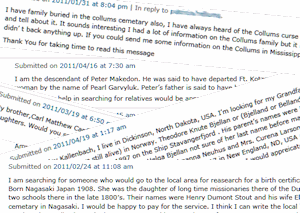 One of the battles and benefits in publishing an interactive genealogy and family history site is the interaction. As a professional blogger, trainer, and consultant, I have some advice for family history bloggers and those who frequent their blogs to help you deal with unwanted comments.
One of the battles and benefits in publishing an interactive genealogy and family history site is the interaction. As a professional blogger, trainer, and consultant, I have some advice for family history bloggers and those who frequent their blogs to help you deal with unwanted comments.
I’m not talking about comment spam. That’s a different subject. I’m also not talking about those strange people who leave comments about looking for their birth parent or odd ball comments that offer you no information and are clearly unrelated to anything you are covering. These are people who clearly need help, and you’re not the right source. If you are, if you have an expert site on helping people find their birth parents, let me know so I can send these people to you!
I’m talking about the comments from people desperate to get help in tracking down their relatives posting comments about their families on your family history site, families not related to yours, or in any way associated with what you are researching or writing about. They are stuck, naive or truly ignorant and think that a shotgun approach is the best way to get help for their family members.
A week ago, I was contacted by a family history blogger wracked with guilt about the vast number of unrelated family comments she was getting on her blog. It didn’t help that she had a Smith line in her family, but that was only a single person and not a direct line ancestor, not that those leaving all the comments about their Smith families cared about that. She wanted to know what to do. She wanted to help them, as others had helped her during her research.
For the first year of her blog, she did help them, digging into her own research that she’d collected along family lines that ended up not being right, and sharing her own research sources to give them possible answers on their family questions.
“I’m spending what little time I had on my own family research on theirs. I don’t want to be mean but I have to say no. How do I say no to these people? I was once like them, desperate for help with no where to turn.” She was near to tears on the phone. “It’s wearing me out and I’m starting to dread going to my own blog!”
After a hiatus on my own family history blog, I came back to hundreds of unrelated comments I had to plow through and clean out, so I understand her quandary and dread of facing such comments, especially when the motivation to dig back into my past was reinvigorated. So what do you do?
Decide Your Family History Site Purpose and Path
Everyone who takes to the web to share their family history research makes a choice. There are three standard choices:
- Share your family’s history.
- Share lessons learned in researching family history.
- Or a mix of both, share your expertise in family history research while sharing your family’s history.
I choose the latter since education is always a priority for me, but few have time to do both.
If your site’s purpose is to share what you know about your family and encourage more research into your family lines, then helping others with unrelated family searches is not inline with your purpose.
If your site’s purpose is to share your experience, knowledge and experiences learned along the way to uncovering your own family history, then it could be that helping these people is right up your alley and part of your site’s purpose.
If your site is a mix, then you have to set boundaries, limits to what you will and will not do with both sides of your content. If you have the time and will to help them with their research, go for it. Announce it everywhere on your site and enjoy the process. If you don’t, like me, and have barely enough time to keep up with the research you do have, then let them know what your limits and guidelines are when it comes to off-topic family help.
How to Handle Unrelated Family Questions
Here are some tips to help you handle those unrelated family questions on your site to help relieve you of the guilt and obligation, and to speed up the process of managing your comment queue.
Have a Strong Comments Policy
To begin with, you must have a strong comment policy. In it, you must define what is acceptable and unacceptable as a comment, and the actions you are perfectly within your right to take when a comment does not meet those standards.
Think this out. Consider your site’s purpose and intent. Will you allow unrelated family comments on your blog? If so, are you willing to help them in their search? If the answer is yes, then say so, but also describe what that responsibility involves. Is it limited to you responding with, “I wish I could help but these are not members of my family line,” or more like offering recommendations and resources for tracking down their family?
Know that if you allow their comments, people searching for those family members may stumble upon your site and their comment during their search. This does two things. It dilutes your own indexed search keywords and causes hope where there is none.
Unrelated keyword searches can bring people to your site thinking they’ve found an answer, when they’ve only found an inquiry – and a dead end. If they think the questioner could be a family member, they might add their comment asking to contact the person who left the original comment. Now, you become the networker, connecting B to A and hoping they find a relation. While this is brilliant, it adds more work to the process and dilutes your own content even more.
If you use a Subscribe to Comments WordPress Plugin, and the commenter enabled this option when they left a comment, when the second commenter responded, an email notification would be sent out, alerting them to a comment on that post, and maybe they might return to follow up on the discussion on your blog with hope. Again, that would be dilution and require some perfect steps on the path to make that happen, and it could involve a lot more work with little gain on your part.
If you really can’t support those efforts, and you sincerely don’t have time to help these people out nor interest in diluting your content, then put a notice on your comments that all unrelated family questions may result in the deletion of their comment. Say it nicely and clearly to set your boundaries while encouraging people to look elsewhere. While it sounds mean, it’s actually a good thing as they know not to waste their time and effort on a site that has no possibility of really uncovering that lost stone.
So think about what you will allow and won’t, the technical steps to make these things happen, and the responsibility, and liability, that comes with your decisions. Then write it out clearly in your comments policy, either in a brief statement near your comment box or via a link from a statement there, and in your footer.
While this won’t stop people from commenting or encourage them to comment more, it’s something you can point to if they come asking why you deleted or edited their comment, and it sets the ground rules for everyone.
Put Warnings in the Comment Box.
In the comment box area, put a link to your comment policy and outline what you will and won’t allow, including whether or not you welcome comments from non-family researchers.
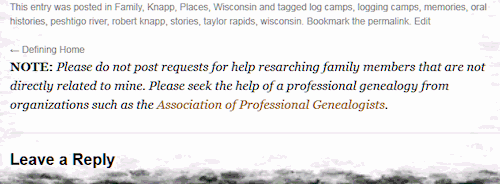
As I’m not a professional genealogist, and barely have time to handle my own huge family history research, I’ve posted the following at the top of the comments form:
Please do not post requests for help researching family members that are not directly related to mine. Please seek the help of a professional genealogy from organizations such as the Association of Professional Genealogists.
This makes it clear that I’m not open to helping non-relatives, and gives them a resource to get the help they need.
Direct Them to the Right Resources When Possible
I have an Anderson line in my family. Within the United States, it’s a direct path that is well known now from their arrival in the late 1800s from Norway to Wisconsin and direct to me. When researching some of the extended family, I often run across the same Anderson name, like Anders Anderson and John Anderson, but they aren’t my Andersons. I keep those links in my research and add a reference note at the bottom of articles researching that particular Anderson, giving readers other resources to maybe help them find their John or Anders Anderson. For an example, see the bottom of this article on Otto Anderson (1870-1916), which might help people find their Otto which isn’t my Otto…though I’m still looking for more information on his son, Otto.
As you are doing your research, keep track of any similar names you run across within the same time period. This helps you as a reference to avoid tracking down those unrelated branches in your own research, and you can quickly create a list in your articles to help others having similar issues.
Consider creating a Page on your site for these unrelated (but could have been) family lines and refer people to it. This might help them track down similar names that could uncover more of their lineage.
Be Fearless with the Delete Key.
Honestly, be fearless with the delete key. Be brave. You can do it!
If these unrelated family comments annoy you or clog up your comment queue, kill them off. Comments are content and you control all the content on your site. Edit them or delete them. Don’t waste your time when you have so little to spend on your own.
Learn How to Comment Yourself.
Are you going around leaving comments on blogs about family members that have no connection to your own? Are you one of the desperate commentators? Think about it. We all get stuck and think there might be some connection when there isn’t. I’ve dug around on sites talking about family history research specializing in a place my family spent a lot of time. I want to know if they maybe stumbled upon my family member, as I’m sure you have. Sometimes we get desperate and the shotgun approach is worth considering.
This is normal, but begin the process by learning how to comment so you can be a better commenter. Set an example for others to follow and your fellow family history researchers will adore you.
Provide concise, helpful information. They don’t need your life story, nor the story of the life of your ancestor. They also don’t need the story of how hard your search has been. They need facts and numbers if they are to help you.
This is not an appropriate comment:
I was searching all over and didn’t know where to turn, so I came here hoping you might be able to help me. Maybe you have stumbled across my family in your own research, or you know where to turn to give me the help I need, because I’m desperate. I’ve looked through Ancestry, Family History, visited the Mormon Church, drove through the town, went to the library, searched the Internet, and that brings me to you. I need help and I don’t know what to do next.
See, my family arrived in the 1800s on the east coast and then traveled south and then landed north in Michigan, and then moved to Wisconsin, North Dakota for a couple years for reasons I don’t know yet but my great uncle was born there, they moved back to Wisconsin. Why they traveled all over and kept coming back to Wisconsin, I’ll never know, but maybe you do.
I’ve got a ton of names and places, but right now I’m looking for John Anderson. I found him on the census report for Lessor in the county of Shawano in Wisconsin. I have no idea what they were doing there but I really need to find them and I’m lost. Can you help me? Have you stumbled across that name in your research?
I get things like that every week. They take me a long time to read as I hope for some connection to my family, the key reason I blog about my family history, and bore me before I get to the end of the first sentence. Here’s the better request.
I’ve come to a dead end on searching for John F. Anderson (May 1850-Dec 1920) born in Norway and died in Lessor, county of Shawano, Wisconsin. I found him living in Lessor in the 1880 census three names down from your family’s name and thought they might be neighbors. I know you are researching that area and thought you could possibly help me. Thank you.
Boom, we have a connection, an incentive for helping, didn’t waste time, and a chance to build a link that might open doors on both sides if they were indeed neighbors. Pictures of each others’ family at church or local events, maybe the family was close, or helped them out in some way, or maybe they are listed in diaries or family history notes. Who knows, but in a few words, the likelihood of actually getting a response is greatly increased over the former vague, rambling, and useless comment.
Turn Comments Off.
While I do not normally recommend this, if you really don’t want interactivity on your family history site, or if the ration to legitimate comments to crap is out of proportion, either work harder to create more interactive styled content which encourages comments, or direct them to your contact form and close off comments.
It’s a desperate act, but if you are overwhelmed with unrelated and spam comments, turn off comments. Have a clearly indicated Contact Form and let all communication pass through there. There is no sin in shutting off the comment box, as long as you continue to allow those with the keys to your family’s mysteries an access point.
Which Solution Works for You?
Remember that your family history site is for the benefit of you and your family. Anything that gets in the way of your research and enthusiasm for family history needs to go. Say bye-bye to time wasters and focus all your energy into doing what gives you all the joy.
My friend? She employed a combination of these tips. She wrote up a strong comments policy and including a link in the comment box area that said she would no longer be able to accept comments from unrelated family lines. She then went through her comments queue and deleted all unrelated family inquiries. She found that she was too quickly found in search engines by those unrelated family names. Her passion to help others convinced her that leading them astray was not helpful.
She also dug through her records and found good resources for family names and research that are not her lines and created a resource page to help direct others to what could be better help than she could give them on a case by case basis.
A few months later I called her to check in and she was much calmer. “I no longer face my family blog with dread. I’m enjoying it again, spending more time on my own family line and uncovering a lot more precious gems. If I find a trail that goes nowhere, I add it to the dead-end resource page in the hopes that others will benefit, and according to the comments on that page and not the rest of my site, it’s working. I get the joy of helping without wearing myself out, and clean house at the same time.”
Maybe with these guidelines you will find that renewed energy and overcome at least one of the many battles facing family history bloggers.
Most Recent Articles by Lorelle VanFossen
- The Myths and Mysteries and Hunt for Nicholas Knapp
- The Perpetual Calendar
- GenSmarts: Reminder to Not Assume
- Gensmarts Saves Your Family History Research Life
- Digging Through Historical Newspapers Online

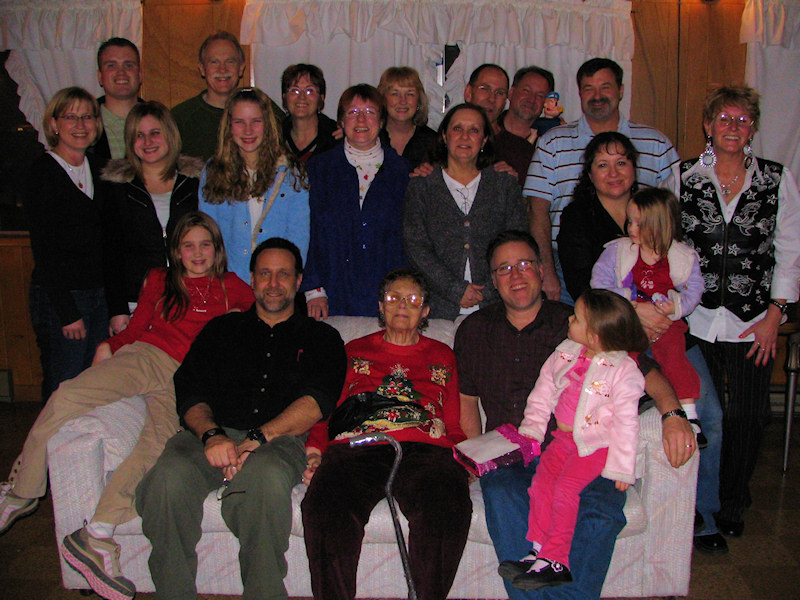
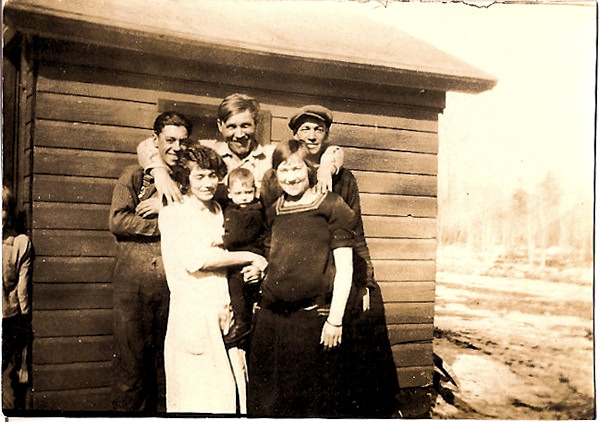
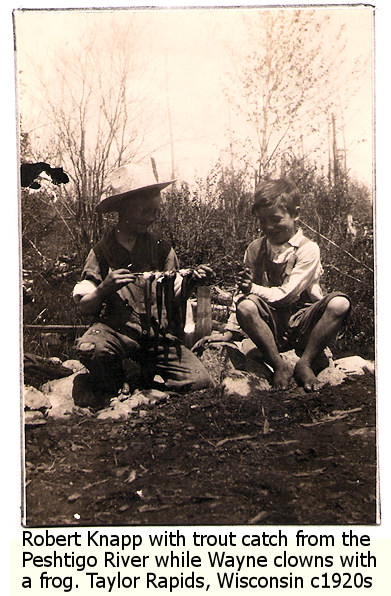
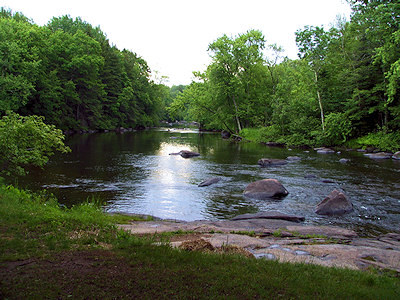
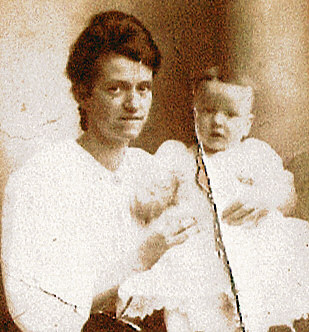
Pingback: Family History Blogging Resources and Tips | Learning from Lorelle